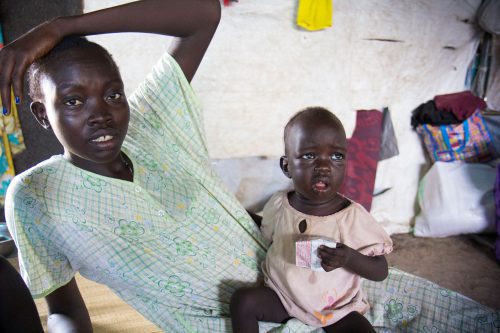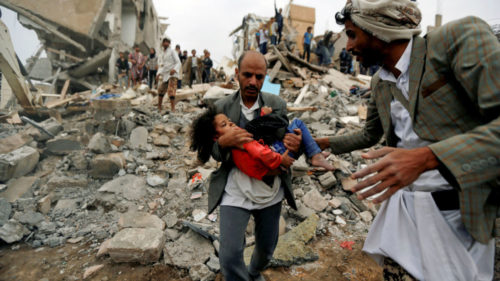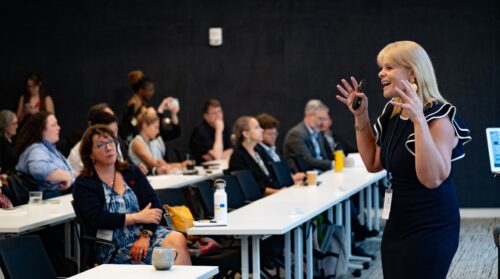
Guidelines for NGO Coordination with Military Actors During Humanitarian Crises
When responding to humanitarian crises, NGOs independently asses the risks of when, how, and why they would or would not coordinate their activities with the U.S. military.

They aim to help people in distress, but each year scores of aid workers are killed on the job worldwide
South Sudan Will Now Charge $10,000 For An Aid Worker Permit. Why?
It's unclear whether the fee would apply only to newcomers or to those already there as well. Whatever the case, the amount is "absolutely unheard of globally."
The South Sudan Level 3 designation: from policy to practice
The United Nations Emergency Relief Coordinator (ERC) has declared that the humanitarian situation in South Sudan warranted classification as a system-wide Level 3 (L3) emergency.
Is it time to devise a faster response to slow onset disasters?
"It is either time to bolster drought indicators and better define action tied to early warning systems, or rethink aid frameworks altogether."
They aim to help people in distress, but each year scores of aid workers are killed on the job worldwide
“[S]ometimes we’re less present in places where we should be, just because we can’t guarantee sufficient security,” Schopp said.
Famine-Wracked South Sudan Now Wants To Charge Aid Workers For Help
South Sudan is wracked by unfettered violence, ethnic cleansing, and famine. But now the government wants to charge aid workers $10,000 to operate in the country.

Annual Partnership Consultation Explores Yemen Crisis, Sexual Exploitation and Abuse, and other Critical Humanitarian and Development Challenges
Leaders from our humanitarian team joined the WFP discussion to share their insights on effectively addressing sexual exploitation and abuse, and lessons learned from the Yemen crisis.

Recapping Forum 2024
On June 26 and 27, over 240 leaders and innovators in the global development and humanitarian community gathered for InterAction’s flagship annual event, Forum, at Convene in downtown Washington, D.C. Headlined by speakers from Congress and the Administration, and complemented by panel discussions and interactive sessions from over 30 organizations, the event sparked broad discussion and debate on a variety of issues—from localization and sanctions, to artificial intelligence and current global crises.
